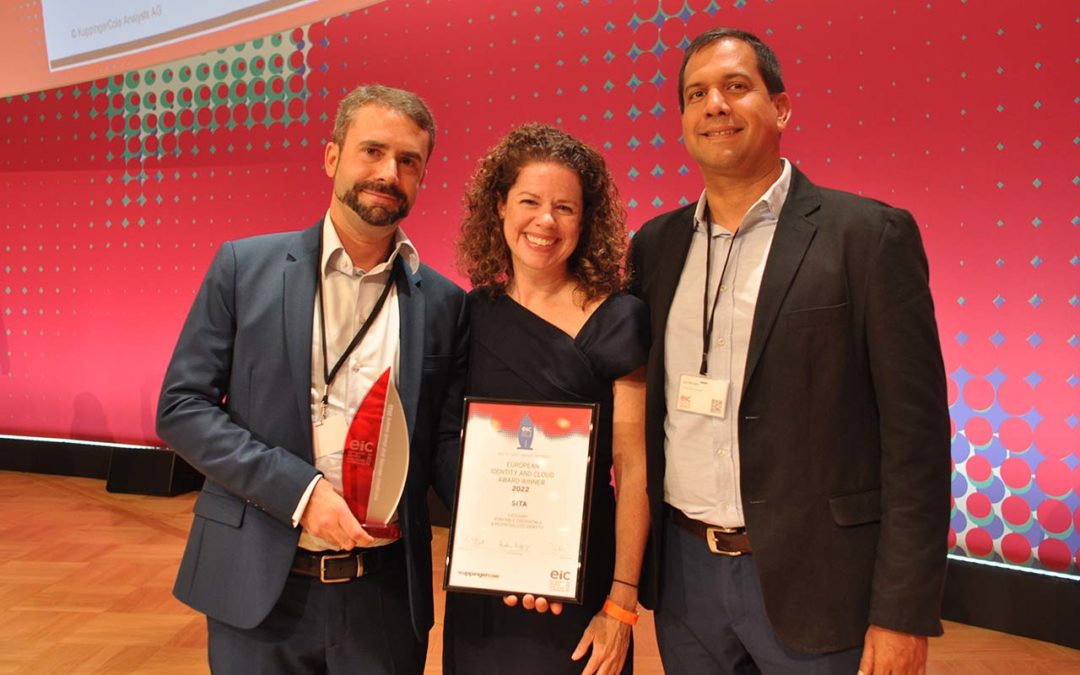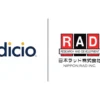Left to right at EIC, Berlin, 2022, Adrien Sanglier, SITA; Heather Dahl, Indicio; Yuri Feliciano, Government of Aruba
SITA recently won a decentralized identity award at the KuppingerCole European Identity and Cloud Conference in Berlin for technology Indicio built; Indicio CEO Heather Dahl reflects on what it means
By Heather Dahl
It was a magical night in Berlin, and literally so for Indicio, as we had just been thanked by SITA at the European Identity Conference for being “the magicians” behind their award-winning technology.
Yes, there is magic in the technology we built, or at least, superpowers: Decentralized identity really can solve the chronic, destabilizing problems of verification, privacy, and security all at once.
But it only works like magic when you consider some of the other critical ingredients that went into this two-year development journey.
The first is vision.
SITA, the leading provider of technology to the air transport sector, saw the possibilities of digitizing the entire travel experience while preserving passenger privacy through verifiable credential technology—a vision that could be summarized in one, powerful, view of the airport of the near future: no lines, no queues.
The second is a challenge—or in this case, something we would all agree is better described as a crisis.
The vision of no airport lines was quickly realized in 2020 in the worst possible way by a global pandemic, which meant there were no passengers at all. How could travel restart under pandemic conditions—how could tourism-dependent economies reopen safely? Could decentralized identity solve this problem?
Yes it could, it could provide definitive proof of a person’s Covid test status without airlines having to integrate with centralized databases of health data, a path mired in complexity and legal liability. It could allow passengers to use this proof in a way that protected their privacy.
But where in the marketplace did such an end-to-end, decentralized identity ecosystem exist? It didn’t. There were, instead, bits and pieces of technology, some open source, some proprietary; and there were critical gaps that needed to be filled.
So we filled in and built out this ecosystem, step by step, something that could not have happened without the help of the government of Aruba and its openness to digital innovation.
With each success came the renewed confidence to build further, until a technology solution that only existed in theory not only worked in practice, countries everywhere could avail of the open source codebase to deploy similar systems—thanks to SITA donating the code written to Linux Foundation Public Health (see Cardea.app).
The third ingredient to this magical recipe is collaboration.
Yes, that’s an effortless word, but in practice it requires effort. It was vital to understand what our partners in this project needed to succeed on their terms. We, as a company, weren’t just building a sell-and-forget product, we had to join our partners’ journey and make their destination our goal.
It fed our creative intensity through many late nights, it meant everyone pulled together to make obstacles disappear and trials happen. And together, we pushed the back of the decentralized identity envelope.
Yes, Covid has, hopefully, abated. But we have a powerful, privacy-preserving way to manage Covid testing and vaccination if the need again arises. And that same technology can now be applied to the entire hospitality and travel sector for any purpose where verifiable data is needed, can mitigate risk, reduce cost, and improve the customer’s experience.
While the Cardea project is now turning to new health data applications, the original vision of a digitalized travel experience has the working technology to take off.
Actionable data is within everyone’s grasp.
And fewer lines.






